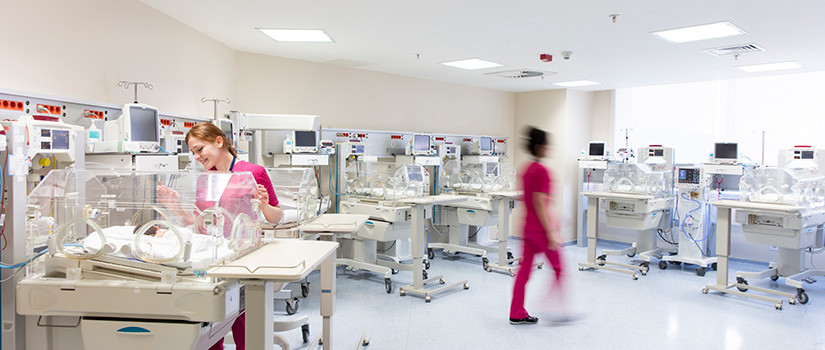Caring for newborns is a calling that requires skill, compassion and resilience. We celebrate our alumni who have embraced the unique challenges of being NICU (Neonatal Intensive Care Unit) nurses.
Laura Tautkus ('20 BSN) | Memorial Health University Medical Center
Why is the NICU important?
The NICU provides around-the-clock care to sick and preterm babies. How long each baby stays depends on their health conditions. Some babies stay for a few hours/days, while others stay for weeks/months. We take care of babies ranging from being born at 22 weeks to 40+ weeks gestation. The NICU provides extra support to infants with maintaining body temperature, breathing support, infection treatment, regulating blood sugars, and feeding/growing, to name a few.
What is the most rewarding part about working in the NICU?
There are many rewarding parts of working in the NICU, but one of the best is watching a baby who had all the odds stacked up against them, finally getting to discharge home and healthy with their family. Being able to connect with families on a personal level and watch their baby grow and thrive throughout their NICU stay is heartwarming.
Megha Patel ('21 BSN) | Prisma Health Greenville
What are your day-to-day responsibilities in the NICU?
In the NICU nurses have “care times” in which we assess, feed and change babies, along with procedures, administering medication and drawing lab values. We do this every three hours to minimize stimulation and mimic the womb. Typically we take care of two to three babies depending on their medical condition. We also do a lot of educating and supporting parents during these tough times.
What is the most valuable thing you've learn from being in this role?
Every patient is different and to trust your gut and instincts. Sometimes kind words, listening and a smile really go a long way for families in times of need. Advocating for your patient especially in the NICU is very important because babies can’t tell you when something is wrong so always voice your concerns to a provider no matter how small of a change.
Do you have any advice for first time NICU nurses or nursing students?
My biggest piece of advice is to always ask questions and never be afraid to ask for help!

Brittany Bostic ('12 BSN) | Pediatrix at Prisma Health Richland
Why is NICU Awareness Month Important?
Many people and parents are unaware of the NICU until they face a critical need for it. This month serves as a reminder of the lifesaving work happening behind the scenes, beyond the common misconception that staff simply cradle babies all day. NICU professionals provide essential care to newborns who are more resilient than many realize. These babies constantly surpass expectations, demonstrating strength and perseverance that inspire all who witness their journeys.
How did USC Nursing prepare you for this role?
The connections I built with professors and their encouragement to pursue externships helped me gain hands-on experience and confidence in my career. During one of those opportunities, I was placed in the NICU at Prisma Baptist, a path I hadn't initially considered. However, that experience sparked my passion for neonatal care and set me on the course that led me to this role.
